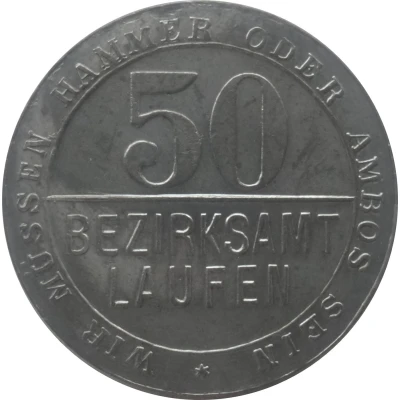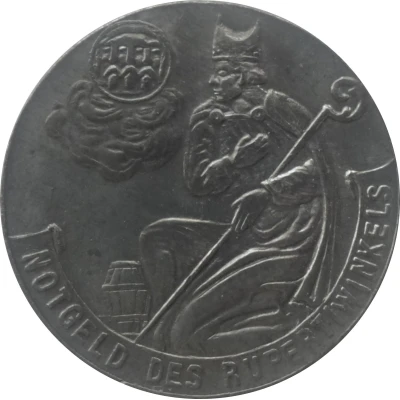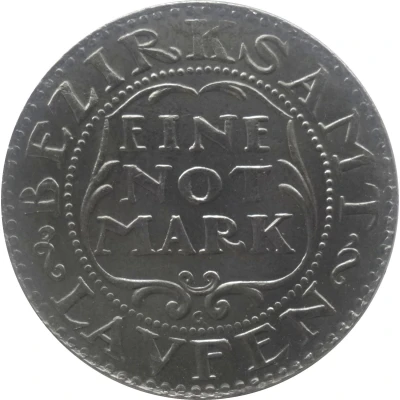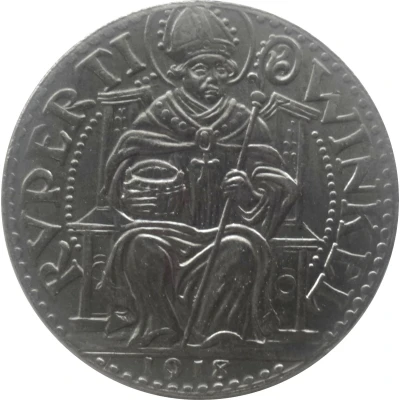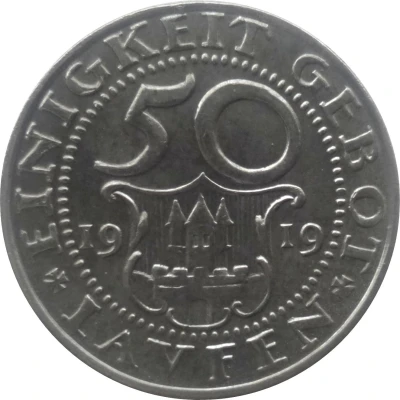
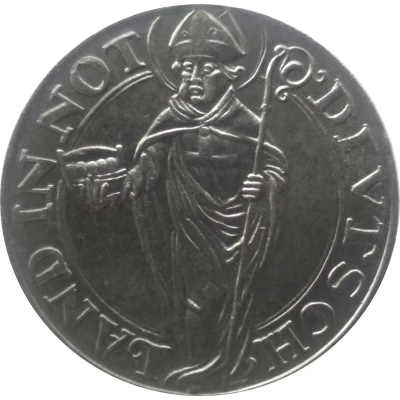

© Willem63 (CC BY-NC-SA)
50 Pfennigs - Laufen
1919 year| Iron | 3.8 g | 25.3 mm |
| Issuer | District of Laufen (Bavaria) (Federal state of Bavaria) |
|---|---|
| Period | Weimar Republic (1918-1933) |
| Type | Standard circulation coin |
| Year | 1919 |
| Value | 50 Pfennigs (50 Pfennige) (0.50) |
| Currency | Mark (1914-1924) |
| Composition | Iron |
| Weight | 3.8 g |
| Diameter | 25.3 mm |
| Thickness | 1 mm |
| Shape | Round |
| Technique | Milled |
| Orientation | Medal alignment ↑↑ |
| Demonetized | Yes |
| Updated | 2024-10-04 |
| Numista | N#149339 |
|---|---|
| Rarity index | 90% |
Reverse
Solid line rim, legend surrounding Saint Rupertus.
Script: Latin
Lettering: DEUTSCHLAND IN NOT
Translation: Germany in distress
Engraver: Karl Goetz
Edge
Plain
Comment
Frenzel 277.11
Interesting fact
The 50 Pfennigs - Laufen 1919 coin was minted during a time of economic turmoil in Germany, known as the "Inflationary Period" (1914-1924). During this time, the value of the German mark (the national currency) plummeted, and prices for everyday goods skyrocketed. As a result, many Germans turned to alternative forms of currency, such as local Notgeld (emergency money) and foreign currencies. The 50 Pfennigs - Laufen 1919 coin, made of iron and weighing 3.8 grams, was one of the few coins that remained in circulation during this time, and it became a symbol of stability and hope for the German people.
